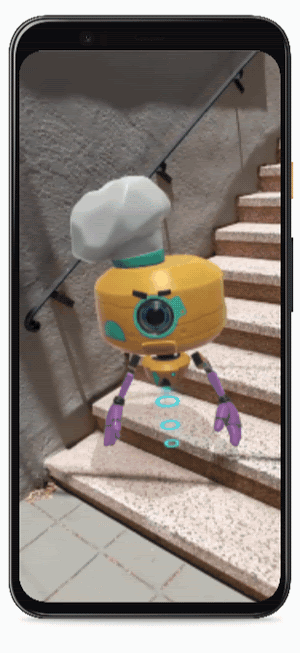

Google has been testing improved depth capabilities in its ARCore framework since last year, allowing digital objects in augmented reality to hide behind real-world obstacles. Now, the firm is pushing out the ARCore Depth API to loads of compatible phones.
The Depth API allows phones to generate depth maps without the need for special hardware like IR sensors and depth cameras. All you need is a standard smartphone camera in order to get the feature working. These depth maps enable features like the aforementioned occlusion capability, with digital objects hiding behind real-world objects like trees and walls. Check out a GIF below for a better example of what to expect.
Google confirmed that the team behind Five Nights at Freddy's AR: Special Delivery uses occlusion for jump scares, allowing digital characters to hide behind real-world objects.
The ARCore Depth API also enables physics-based features, with digital objects traveling down real-world stairs, bouncing off walls in your home, and more. Google has launched an ARCore Depth Lab app on the Play Store to show off these new features.
The search giant confirmed that Snapchat is also on board with the new technology, offering two new lenses as well as offering the Depth API to lens creators. Other apps using ARCore's Depth API include the TeamViewer Pilot app, Samsung's Quick Measure app for the Galaxy Note 10 Plus and S20 Ultra, and Google's experimental Lines of Play app.
The ARCore Depth API is rolling out today in ARCore 1.18 for Android and Unity. Do you use augmented reality apps? What are your favorite AR apps? Let us know in the comments!
More posts about Google
from Android Authority https://ift.tt/2A23i1M
via IFTTT




Aucun commentaire:
Enregistrer un commentaire